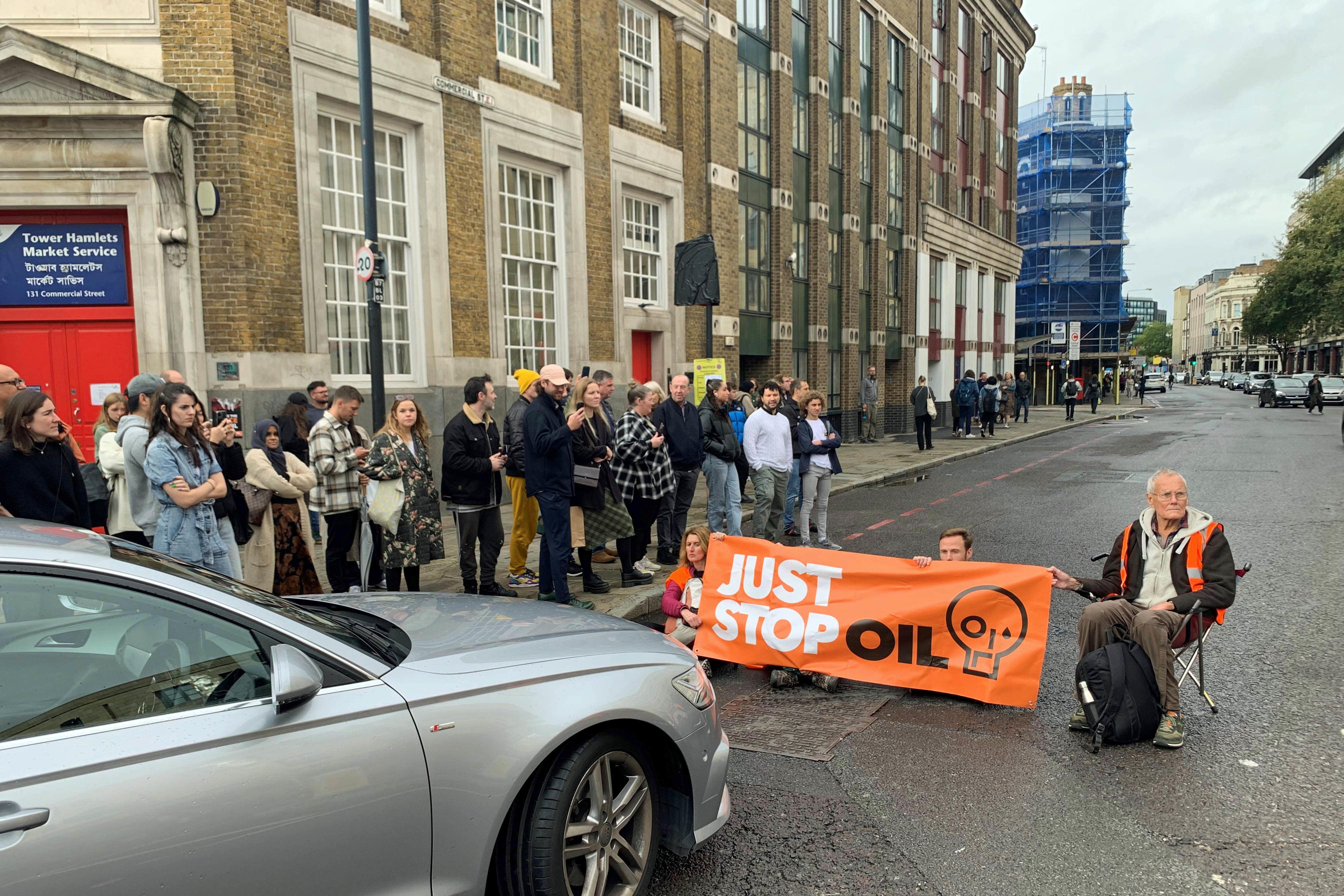Judge orders more than 180 protesters to stop blocking roads in London
Mr Justice Freedman granted injunctions at a High Court hearing after Transport for London bosses said Just Stop Oil protests had intensified

A High Court judge has ordered more than 180 people not to block roads in London following the intensification of Just Stop Oil protests.
Mr Justice Freedman granted injunctions at a High Court hearing in London after an application by Transport for London (TfL).
Another judge had recently made an order against 62 named people. Mr Justice Freedman continued that injunction and made an order against a further 121 named people, bringing the total to 183.
He was told that the names of those 121 people had been given to TfL by the Metropolitan Police after they had been arrested at protests.
The judge also made an order against “persons unknown”.
Mr Justice Freedman delivered a ruling on Monday after considering evidence at a hearing on Thursday.
Lawyers representing TfL had told him that since the start of October “protest activity” had “very largely focused” on London roads.
They said the “deliberate blocking” of roads caused serious disruption and created a “risk to life”.
Earlier in October, Mrs Justice Yip had granted an injunction against 62 named “defendants” and against “persons unknown”.
Mrs Justice Yip also made an order saying the Metropolitan Police should “disclose” to TfL the names and addresses of people arrested as a result of protests.
Barrister Andrew Fraser-Urquhart KC, who led TfL’s legal team, told Mr Justice Freedman that the force had disclosed the names of “further such people”.
He said that, as of Wednesday last week, 1,900 arrests had been “made of Justice Stop Oil protesters” since the start of April – with 585 made since the start of October.
Mrs Justice Yip’s order barred the blocking of specified roads, or locations, in London.
Mr Justice Freedman barred the blocking of six additional roads, or locations, bringing the total to 23.
Lawyers told Mr Justice Freedman that TfL was a “traffic authority” for “important” roads in Greater London.
People who breach civil court injunctions can be found to be in contempt and jailed.
Mr Justice Freedman said he had considered people’s right to free speech and freedom of assembly – and “the important issues” behind the protests.
But he said those had to be balanced against the rights of the “general community” and other people.
TfL had argued that protests were putting people at risk, creating economic harm, causing a nuisance, and costing the police and other public bodies money.
Mr Justice Freedman said he had concluded that injunctions were justified.
He indicated that his orders would be reviewed in about four months.
